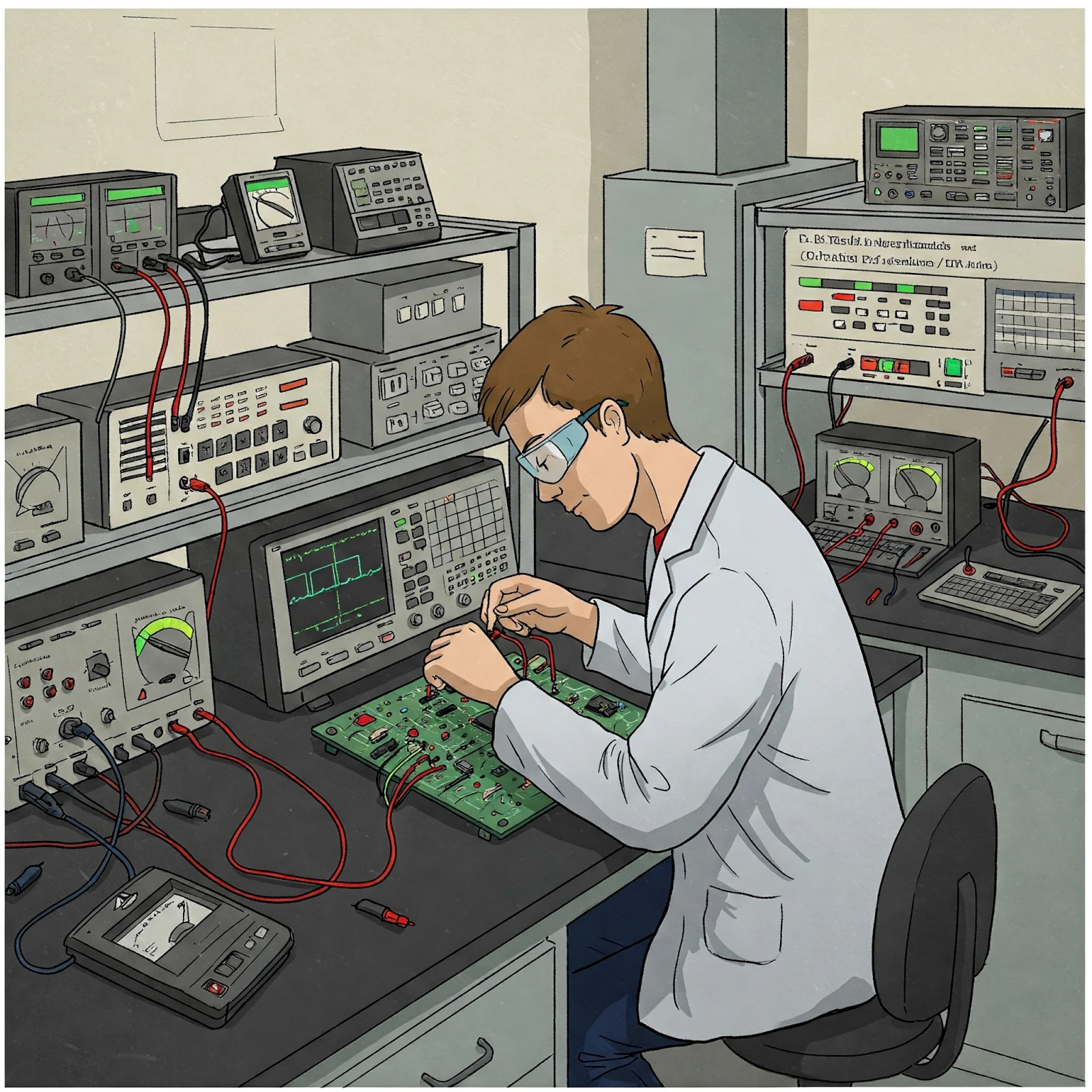B.Tech. in Electronics and Communication Engineering: A Pathway to Wire Your Future

Blog / February 26, 2024
Electronics and Communication Engineering (ECE) is a torchbearer of advancement and progress in today's intertwined world. From the gadgets we utilize daily to the complex networks powering global communication, ECE plays a vital role in molding our contemporary society.
Wait, does wireless connectivity and avant-garde technology entice you? Do you have a natural curiosity about how electrical gadgets function and connect? If so, a B.Tech. in Electronics and Communication Engineering might be the perfect option for you.
Like any 12th pass out, a pool of questions might have hit the chords of your brain, “Would you get a well-paid job after your undergraduate degree or not?” Or which is better: CSE or ECE? Right?
As per the findings of Industry Research Biz, the global Electronics market size was valued at USD 1497415.58 million in 2022, and it is anticipated to expand at a CAGR of 5.5% during the forecast period, surpassing USD 2065063.0 million by 2028. This statistic suggests that the future for a B.Tech. graduate in Electronics and Communication Engineering will be lucrative and gratifying.

Source: https://www.fortunebusinessinsights.com/
Which is better: CSE or ECE?
The quick answer to this question ultimately depends on what you expect from your career. Both disciplines have unique qualities and offer a myriad of opportunities. The only distinction is that the courses are chosen depending on the candidates’ preferences. An aspirant with interest in electronics and who fulfills all the predefined conditions can move ahead with Electronics and Communication Engineering (ECE) or vice-versa.
Who earns more: CSE or ECE?
In terms of earning potential, there is no one-size-fits-all when comparing CSE with ECE, as there are multiple factors including geographic location, level of education, years of experience, industry, and specific job roles.
Simply put, CSE and ECE are rewarding fields with high earning potential. However, the salary packages can vary depending on the demand for experts in both fields, prevailing market conditions, and the specific skill sets and expertise needed.
The Latest Advancements in Electronics and Communication Engineering (ECE)
Indisputably, the Electronics and Communication Engineering field is continuously revolutionizing, driven by relentless innovation. The latest advancements in the fascinating field of ECE are mentioned below:
- 5G Technology
- Internet of Things (IoT)
- Artificial Intelligence (AI) and
- Quantum Computing
The Future Prospects
The future of ECE is filled with a plethora of possibilities. As technology is constantly advancing at a quick pace, ECE engineers will play a significant role in driving innovation across various domains. From building sustainable electronics to propelling the frontiers of quantum communication, the B.Tech. in Electronics and Communication Engineering offers limitless opportunities for individuals passionate about molding the future via technology.
In essence, Electronics and Communication Engineering is a diverse and multifarious field that lies at the core of contemporary technology. With its opulent history of advancement and its persistent quest for progress, ECE constantly transcends the boundaries of what’s possible, molding the world we reside in, and forging the way for a shinier future.
B.Tech. in Electronics and Communication Engineering at Shiv Nadar University (Institution of Eminence): Shaping Connectivity, Amplifying Potential
One of the trailblazers, Shiv Nadar University, is a private, research-centric university located in Greater Noida, India, and is named after the philanthropist and HCL’s co-founder Shiv Nadar. The university is recognized for its emphasis on a multidisciplinary approach towards education and research, offering a broad range of undergraduate, postgraduate, and doctoral programs across fields.
The B.Tech. in Electronics and Communication Engineering at the School of Engineering is typically designed to provide students with a holistic comprehension of electronics, communication systems, and related technologies, readying them for careers in various domains such as:
- Telecommunications
- Signal processing
- Embedded systems and
- Networking
The curriculum of the B.Tech. in Electronics and Communication Engineering at the university is structured to amalgamate theoretical with practical knowledge, ensuring students are thoroughly prepared to handle real-world challenges in the field. Students involved in coursework cover subjects like digital electronics, microprocessors, electromagnetic theory, analog communication, and wireless communication. Further, the university promotes a positive learning environment for students by providing modern labs, industry collaborations, and, of course, research facilitates.
The freshmen have access to hands-on learning via thought provoking projects, internships, seminars, and workshops conducted both within the university and in collaboration with industry partners. The professors at the university are experienced educators and researchers involved in groundbreaking research and industry projects. Also, they provide guidance and mentorship to students, empowering & encouraging advancement and critical thinking.
Altogether, the B.Tech. in Electronics and Communication Engineering at Shiv Nadar University presents a blend of academic rigor, practical exposure, and research opportunities, imparting students with the skill sets and knowledge essential to excel in the rapidly evolving field of electronics and communication engineering.
To Make a Long Story Short
The B.Tech. in Electronics and Communication Engineering program at Shiv Nadar University offers a comprehensive approach to education, amalgamating theoretical knowledge with practical skills and research opportunities. With a massive emphasis on advancement and industry relevance, graduates are well-structured for diverse careers in the rapidly evolving field of electronics and communication engineering.